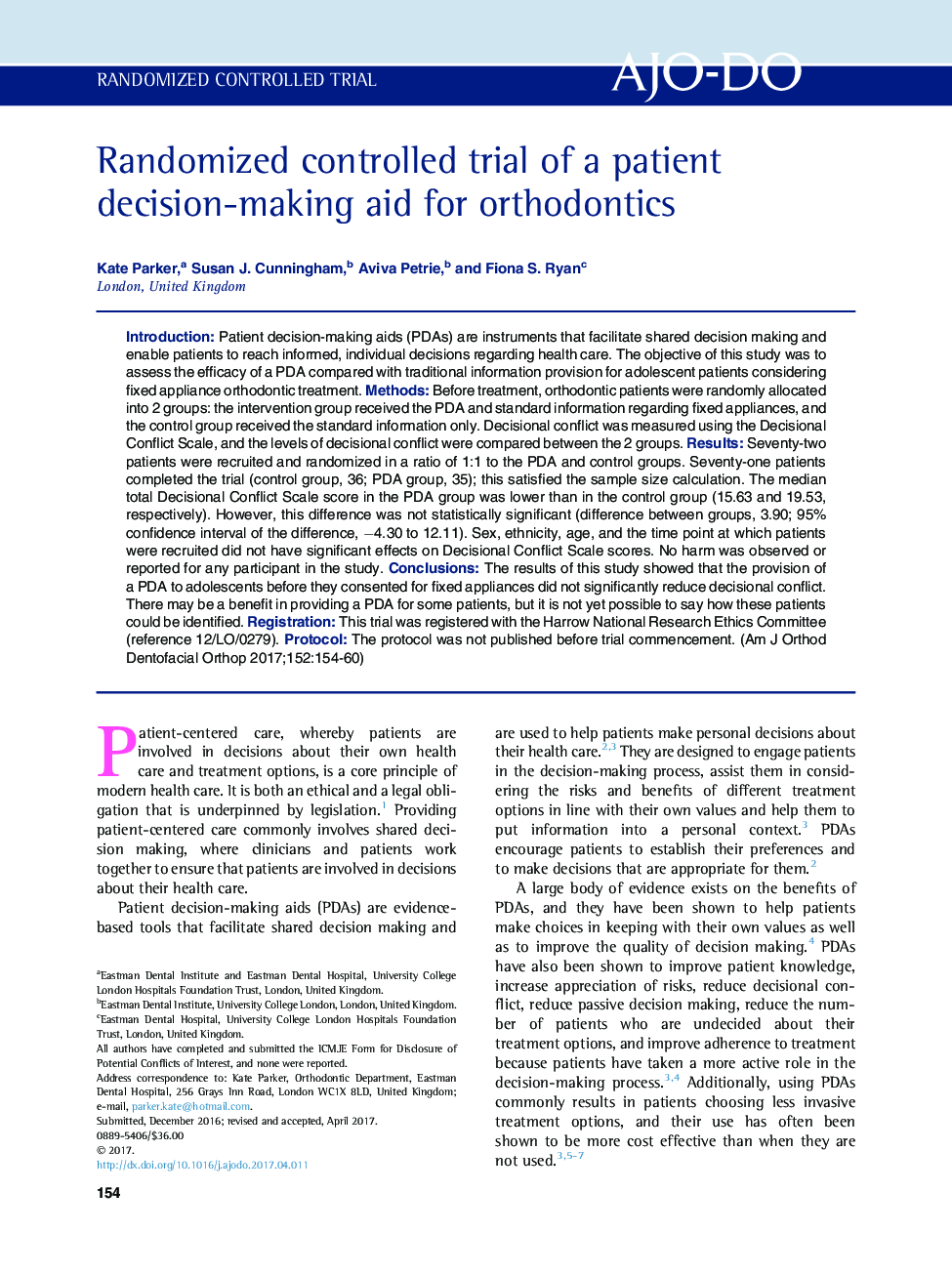| Article ID | Journal | Published Year | Pages | File Type |
|---|---|---|---|---|
| 5637413 | American Journal of Orthodontics and Dentofacial Orthopedics | 2017 | 7 Pages |
â¢Giving adolescent patients PDAs before treatment did not reduce decisional conflict.â¢Sex, ethnicity, age, and time of recruitment did not significantly affect DCS scores.â¢A PDA might benefit some patients, but identifying them remains a challenge.
IntroductionPatient decision-making aids (PDAs) are instruments that facilitate shared decision making and enable patients to reach informed, individual decisions regarding health care. The objective of this study was to assess the efficacy of a PDA compared with traditional information provision for adolescent patients considering fixed appliance orthodontic treatment.MethodsBefore treatment, orthodontic patients were randomly allocated into 2 groups: the intervention group received the PDA and standard information regarding fixed appliances, and the control group received the standard information only. Decisional conflict was measured using the Decisional Conflict Scale, and the levels of decisional conflict were compared between the 2 groups.ResultsSeventy-two patients were recruited and randomized in a ratio of 1:1 to the PDA and control groups. Seventy-one patients completed the trial (control group, 36; PDA group, 35); this satisfied the sample size calculation. The median total Decisional Conflict Scale score in the PDA group was lower than in the control group (15.63 and 19.53, respectively). However, this difference was not statistically significant (difference between groups, 3.90; 95% confidence interval of the difference, â4.30 to 12.11). Sex, ethnicity, age, and the time point at which patients were recruited did not have significant effects on Decisional Conflict Scale scores. No harm was observed or reported for any participant in the study.ConclusionsThe results of this study showed that the provision of a PDA to adolescents before they consented for fixed appliances did not significantly reduce decisional conflict. There may be a benefit in providing a PDA for some patients, but it is not yet possible to say how these patients could be identified.RegistrationThis trial was registered with the Harrow National Research Ethics Committee (reference 12/LO/0279).ProtocolThe protocol was not published before trial commencement.
